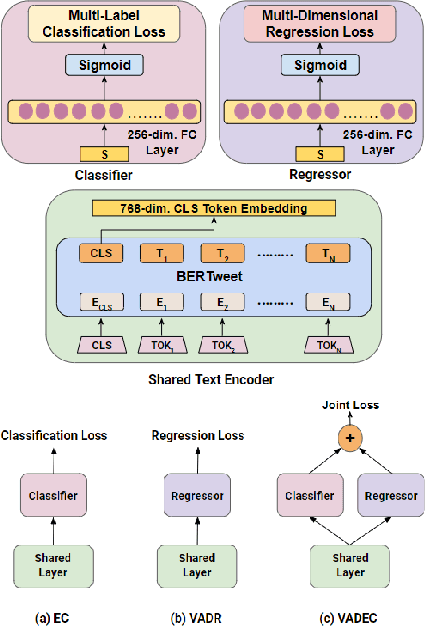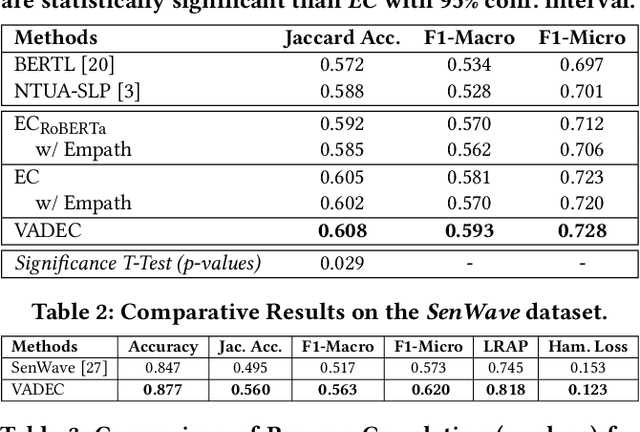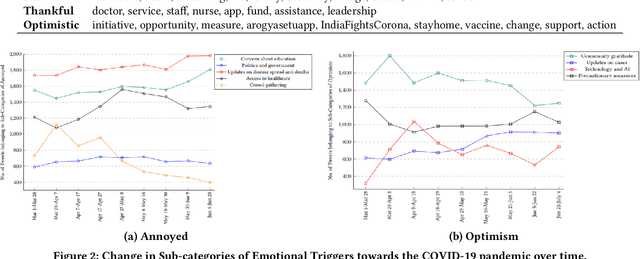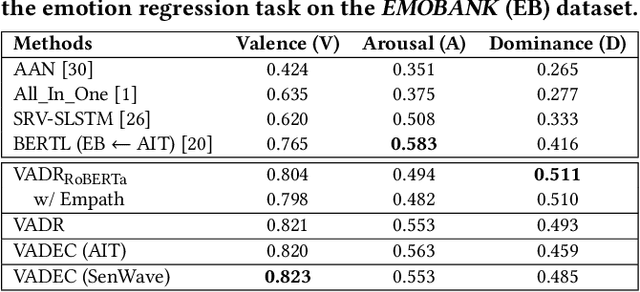Understanding the Role of Affect Dimensions in Detecting Emotions from Tweets: A Multi-task Approach
Paper and Code
May 09, 2021



We propose VADEC, a multi-task framework that exploits the correlation between the categorical and dimensional models of emotion representation for better subjectivity analysis. Focusing primarily on the effective detection of emotions from tweets, we jointly train multi-label emotion classification and multi-dimensional emotion regression, thereby utilizing the inter-relatedness between the tasks. Co-training especially helps in improving the performance of the classification task as we outperform the strongest baselines with 3.4%, 11%, and 3.9% gains in Jaccard Accuracy, Macro-F1, and Micro-F1 scores respectively on the AIT dataset. We also achieve state-of-the-art results with 11.3% gains averaged over six different metrics on the SenWave dataset. For the regression task, VADEC, when trained with SenWave, achieves 7.6% and 16.5% gains in Pearson Correlation scores over the current state-of-the-art on the EMOBANK dataset for the Valence (V) and Dominance (D) affect dimensions respectively. We conclude our work with a case study on COVID-19 tweets posted by Indians that further helps in establishing the efficacy of our proposed solution.
 Add to Chrome
Add to Chrome Add to Firefox
Add to Firefox Add to Edge
Add to Edge